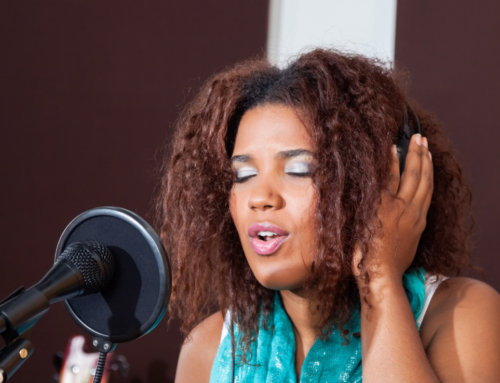In a recent newspaper report published in the Trinidad Express, it was highlighted that Trinidad and Tobago will soon witness litigation proceedings brought by an entertainment company (the plaintiff) involved in songwriting and production, against a local Disc Jockey, Music Producer and Radio Station (the defendants). In the report, the entertainment company is claiming that a song copyright which it owns has been infringed by the latter group. As Music and Entertainment Industry Stakeholders in the Caribbean, it is important to understand the concept of Copyright Infringement. Particularly, how claims of infringement develop, are proven and defended against.
IDENTIFYING INFRINGEMENT
Infringement occurs when any of the exclusive rights of the copyright owner are violated. For example, if an upcoming artist in Jamaica writes a new song in which he incorporates a chorus from one of Beres Hammond’s most famous songs, without his permission; he would have infringed Mr. Hammond’s exclusive rights to copy and re-arrange his songs.
PROVING INFRINGEMENT: STRATEGY FOR PLAINTIFFS
To establish a claim of copyright infringement, the copyright owner (plaintiff) will need to demonstrate that he either owns the copyright to the song in question or owns a copyright interest in the song through an exclusive licence. He must then demonstrate that the defendant’s song in fact copied from his and that the material that was copied results in a finding of copyright infringement.
THE COPYRIGHT IS MINE: DEMONSTRATING OWNERSHIP
Copyright in a song is established when an original work is created and fixed in tangible form- possibly by writing it down or making a recording of it. Normally, the copyright owner will be the composer of the song, the employer of the composer (if the composer wrote the song as part of his employment duties) or an individual or company who the original composer transferred the copyright or at least an interest in the copyright to. An example might be a music publisher. The Plaintiff will have to demonstrate that he created the work firstly.
SHINING LIGHT ON THE ACT OF COPYING
An individual or entity that is facing a copyright infringement claim seldom admits to copying from the Plaintiff’s song. It is also improbable that a witness will testify that they saw the defendant writing his song or composition while listening to the plaintiff’s (direct evidence) so as to prove copying did take place. The Plaintiff therefore has to establish that copying did take place by showing that the defendant had access to his song and that the two songs in question are substantially similar (circumstantial evidence).
You had Access to It
Access means that there is a reasonable possibility that the defendant heard the Plaintiff’s song or saw a printed version of it before writing the song under query. This could be a consideration if the Plaintiff’s song was a major hit before the Defendant wrote his. Another scenario in which access might be established is if the Plaintiff can show that his song was played for or submitted to the defendant as may be the case if the Plaintiff was looking for a singer for the song or to engage in some business relationship with the defendant or a close business associate of the defendant. The stronger the showing of access, the better the Plaintiff’s chances of proving copying.
It is Substantially Similar to Mine
In addition to showing Access, the Plaintiff must also show that the defendants’ song has elements that are major similarities to his. Examples of these elements may be a combination of melody, harmony and lyrics and may be present in one or more sections of the songs, such as the chorus or verse. The best way of defining substantial similarity is that the songs are so similar that an ordinary listener would believe that one song or an important part of it was copied from the other. The Plaintiff could also call an expert witness who testifies that the similarity between both songs is so pronounced that there is no other explanation for the similarity other than one was copied from the other.
I CAME UP WITH THIS SONG ON MY OWN: TACTICS FOR THE DEFENDANT
If the Plaintiff can present evidence showing both, access and substantial similarity this does not prove copying. It simply means that the issue of copying will be adjudicated upon by the court. The Defendant can still win if he can convince the court that his song was created independently of the Plaintiff’s. Irrespective of how similar the songs in contention are, if the Defendant did not in fact copy from the Plaintiff’s song there can be no finding of infringement. This raises the consideration that two composers could possibly compose the same song without either having heard the other’s composition.
In attempting to show that he created his song independently, the defendant could try to prove that as a composer, he had solid musical training and therefore had no need to copy from the Plaintiff’s song. Additionally, he may then show his prior track record of writing several hit songs and therefore had no motive to copy from the Plaintiff’s work. As a third action the defendant may call an expert witness who testifies that several songs written before both the Plaintiff’s and Defendant’s possess similarities to both of them; which is coincidental and thus diminishes the likelihood that the defendant copied from the Plaintiff’s work. Finally, the defendant will attempt to show that the composer of the work in question previously wrote one or more songs that also contained the musical elements that were allegedly copied from the Plaintiff’s song. The reasoning here is that if the composer of the questionable work used the same musical elements before hearing the Plaintiff’s song, it would be unlikely that he copied from the Plaintiff’s.
SOLIDIFYING AN INFRINGMENT CLAIM
A common misconception in the Caribbean is that a composer may use a certain amount of another’s song without being responsible for infringement. Some believe that this amount may be four or eight bars, or some other quantum. However, the copying of a very brief segment from a Plaintiff’s song may result in a defendant being held liable for infringement, if that segment is very important to both songs. A defendant will not avoid responsibility for infringement by arguing that other parts of the song are not similar to the Plaintiff’s.
Another major point to note is that if the court finds that the Defendant’s song infringes the Plaintiff’s, every party that commercially exploits the defendant’s song including, YouTube, radio and television outlets can also be held liable for infringement.
REMEDYING INFRINGEMENT
If a Plaintiff emerges victorious, there are certain remedies that the court can institute. A selection of these include: Injunctive Relief, Order and an Account of Profits and Payment of Damages.
Injunctive Relief
The court can grant an injunction which prohibits the defendant(s) from continuing to sell and distribute the song in question.
Account of Profits
The court may also seek to quantify the amount of profits that the defendant amassed as a result of the infringement.
Payment of Damages
The court can also order that the Plaintiff be paid by the infringer, damages adequate to compensate for the injury suffered as a consequence of the act of infringement, as well as the payment of expenses caused by the infringement, including legal costs.
FINAL CONSIDERATIONS:
Copyright Law has its place in protecting the players in the Caribbean music industry. It is because of this construct, value can be created by providing a mechanism for creators to profit. As we envision a profitable and sustainable music industry in the region, it is important that stakeholders engage in serious business relationships with each others. These relationships must be regulated by legally binding contracts so as to minimise disputes. Additionally, as it pertains to infringement, persons desirous of using the works of others may do so by legal means, such as negotiating the necessary licenses.




